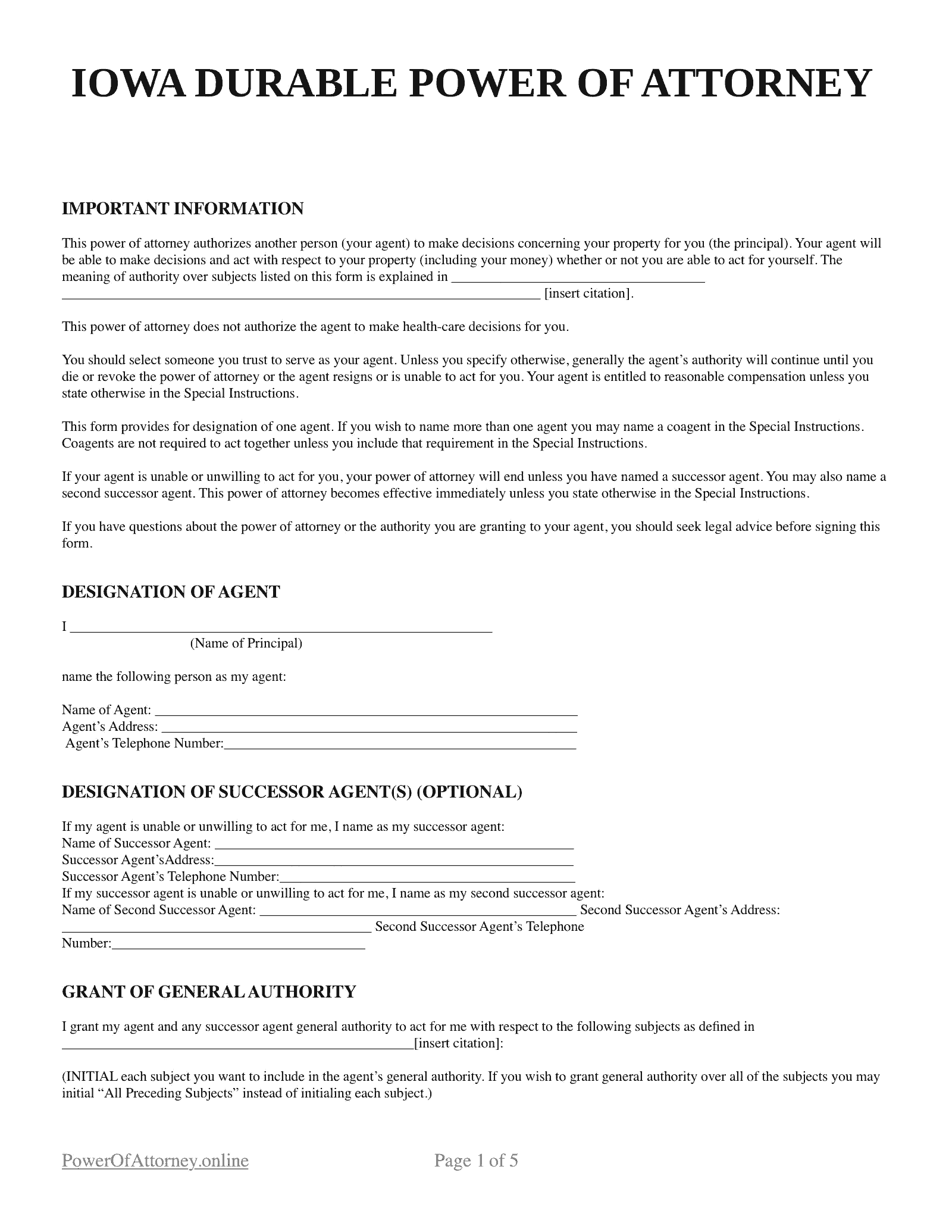Free Iowa Power of Attorney Forms
A power of attorney (POA) is a written legal document that a person known as the principal executes. It appoints another as an agent or an individual responsible for making decisions on the principal’s behalf. It is useful when the principal cannot be present for major personal transactions and decisions.
Two POAs that are often used in Iowa are medical and durable POAs. Let’s take a closer look at each.

Iowa Power of Attorney By Type
Each type of POA grants different liberties to the agent and terms of validity.
- Durable Power of Attorney - this form is a general POA that continues to be in effect even when the principal becomes mentally incapacitated. It comes in handy when the principal has a business or a number of assets that need to be handled. They can grant authority for the management of personal, financial, legal, business, and other affairs. However, durable POAs do not give agents the ability to make healthcare decisions on behalf of the principal.
- Medical Power of Attorney - This document allows the agent to make medical arrangements for the principal. It contains instructions regarding the principal’s treatments, medications, surgery, and place of residence in case they need full-time care. Decisions on nutrition and end-of-life care are also part of the agent’s responsibilities.
How To Get a Power of Attorney in Iowa
You can download a printable Iowa POA template, fill it out, and sign it. In case the principal cannot physically sign the document, they can appoint somebody else to sign on their behalf as long as it is not the agent. Finally, a notary public must acknowledge the document.
Iowa Power of Attorney Laws
Iowa Code Chapter 633B: Powers of Attorney - the law stipulates provisions for the execution and implementation of a power of attorney in the state. Once finalized, it acts as the agent’s written permission to decide on various matters on behalf of the principal. The law also describes when it becomes valid: “A power of attorney is effective when executed unless the principal provides in the power of attorney that it becomes effective at a future date or upon the occurrence of a future event or contingency” (IA Code § 633B).